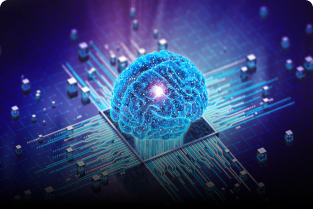If you’re stepping into the world of intelligent technology, you’ve likely asked yourself this common question: Should I learn Artificial Intelligence (AI) first or Machine Learning (ML)? With both fields driving innovations across industries—from self-driving cars to virtual assistants—it’s essential to understand where to start.
Let’s break it down in simple terms and help you decide the right learning path.
Understanding the Basics
Before choosing between the two, it’s important to understand what each term really means.
Artificial Intelligence (AI)
AI is the broader concept of creating machines that can simulate human intelligence. This includes tasks like problem-solving, language understanding, planning, decision-making, and more.
Machine Learning (ML)
ML is a subset of AI. It focuses specifically on enabling machines to learn from data and improve their performance over time without being explicitly programmed for every scenario.
In short:
AI is the goal; ML is one of the ways to achieve that goal.
So, What Should You Learn First?
✅ Start with Machine Learning
Here’s why:
1. ML is the Foundation of Modern AI
Many AI systems today are powered by machine learning. By understanding how algorithms learn from data, you gain a deeper understanding of how intelligent systems work.
2. It’s More Structured and Beginner-Friendly
ML has well-defined learning paths and practical resources. You can start with linear regression, decision trees, and neural networks, then gradually move into deeper AI concepts.
3. Hands-on Practice is Easier with ML
You can immediately apply ML to real-world datasets using tools like Python, Scikit-learn, or TensorFlow. This practical exposure builds your confidence and understanding of AI systems.
When Should You Shift to AI?
Once you’re comfortable with ML concepts, you can explore broader AI topics such as:
-
Natural Language Processing (NLP)
-
Computer Vision
-
Robotics
-
Expert systems
-
Reinforcement learning
These areas often build on ML and add layers of logic, reasoning, and decision-making.
Suggested Learning Roadmap
-
Basic Programming (Python is recommended)
-
Math Essentials (Linear Algebra, Probability, and Statistics)
-
Introduction to Machine Learning
-
Hands-on Projects with ML Algorithms
-
Deep Dive into AI Concepts
-
Advanced Topics: Deep Learning, NLP, Reinforcement Learning
Final Thoughts
If you’re just getting started, learning machine learning first is the smart move. It gives you the practical tools and understanding you need to build real AI systems. Once you’re comfortable with ML, you can expand into AI’s broader and more complex territories.

